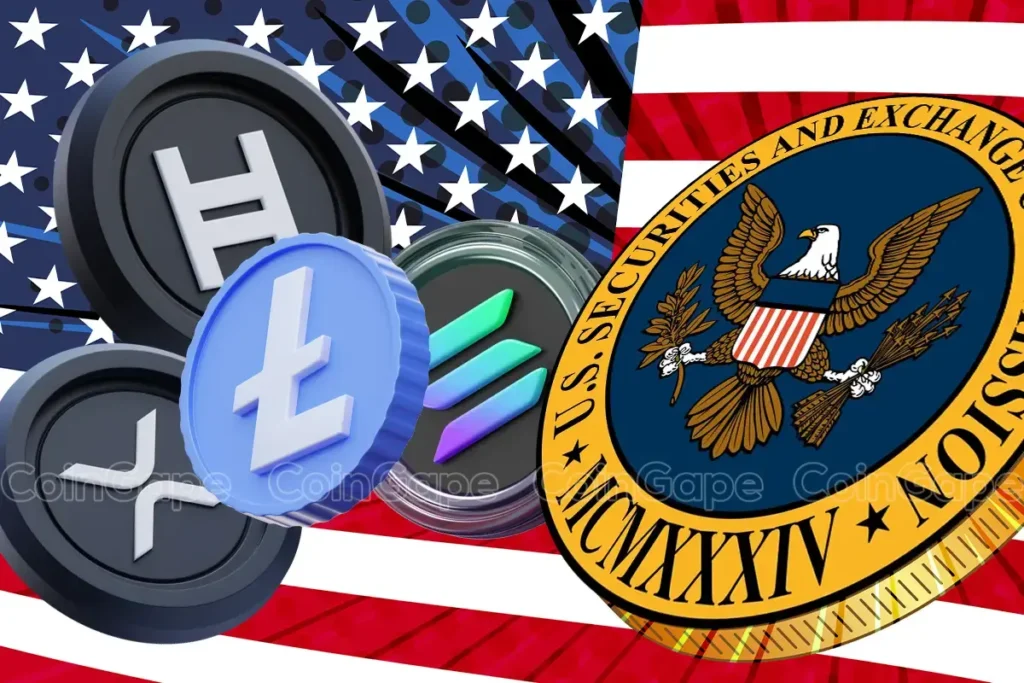The Launch of New Crypto ETFs: Bitwise Solana, Canary Litecoin, and HBAR
Recent developments in the cryptocurrency market have made headlines with the upcoming launches of new Exchange-Traded Funds (ETFs) including the Bitwise Solana Staking ETF (BSOL), the Canary Litecoin ETF (LTCC), and the Canary HBAR ETF (HBR). According to Bloomberg ETF analysts, these funds are set to initiate trading on Tuesday, with the Grayscale Solana ETF (GSOL) following suit on Wednesday. This surge in ETF offerings is notably influenced by a recent guidance letter from the U.S. Securities and Exchange Commission (SEC), a significant shift amid ongoing regulatory scrutiny in the crypto space.
NYSE and Nasdaq Approvals for Trading
In a noteworthy development, the New York Stock Exchange (NYSE) Arca has approved the listing of the Bitwise Solana Staking ETF (BSOL). This was made evident in a CERT filing with the SEC on October 27. In addition, Nasdaq has also granted approval for the Canary Litecoin ETF (LTCC) and the Canary HBAR ETF (HBR), following Form 8-A 12(b) regulations. The confirmations from Bloomberg’s senior ETF analyst Eric Balchunas highlight a growing acceptance of crypto products in mainstream financial markets, pointing towards a more favorable environment for cryptocurrency investments.
The Move Towards Token ETFs
Canary Capital, led by CEO Steven McClurg, has been vocal about the significance of these launches. McClurg remarked, "Litecoin and Hedera are the next two token ETFs to go effective after Ethereum," indicating that the shift towards digital asset inclusion in traditional finance is well underway. This entry of established cryptocurrencies like Litecoin and Hedera into the ETF space not only diversifies investment options but also strengthens the overall trust in cryptocurrencies.
Crypto ETFs Amid U.S. Government Shutdown
Interestingly, the launch of these ETFs occurs amidst a U.S. government shutdown. Nevertheless, the crypto ETFs are positioned to move forward due to the combination of 8-A and CERT filings. The 8-A serves as the formal registration process for ETF shares, allowing them to trade on an exchange, even in challenging regulatory circumstances. A critical amendment to the S-1 filings has permitted these shares to become automatically effective 20 days post-filing. In the case of delays caused by external factors such as a government shutdown, this provision enables the ETFs to proceed without further intervention from the SEC.
Insights from Market Analysts
Bloomberg ETF analyst James Seyffart has expressed optimism about this week’s trading for the Solana, HBAR, and Litecoin ETFs. This positive forecast stems from the SEC’s recent guidance, which has paved the way for more flexibility in launching crypto-related investment products. Meanwhile, Scott Johnsson, a corporate legal expert, highlighted that the procedure of expediting ETF launches is not unprecedented, but it does come with risks, such as potential stop orders once the government resumes operations or heightened fraud concerns.
Conclusion: A Turning Point for Crypto Investments
The launch of the Bitwise Solana Staking ETF, Canary Litecoin ETF, and Canary HBAR ETF signals a significant turning point for cryptocurrency investments within the traditional finance ecosystem. As these ETFs provide investors with a regulated framework to access digital assets, they are likely to garner increased interest and participation from both retail and institutional investors. Such moves not only reflect growing market confidence but also hint at a future where cryptocurrencies are more seamlessly integrated into financial markets.
With the favorable regulatory environment facilitated by the SEC and enhanced offerings in the ETF landscape, the future looks promising for cryptocurrency investment vehicles. As we keep a close eye on how these ETFs perform, the ongoing evolution of the crypto landscape will undoubtedly continue to shape investment strategies and market trends.


